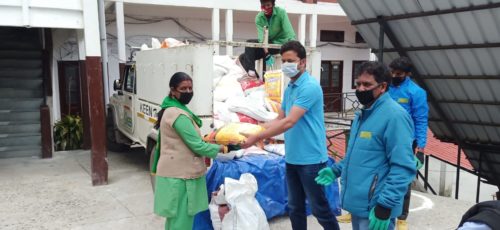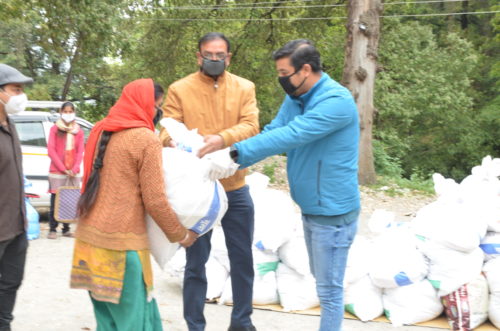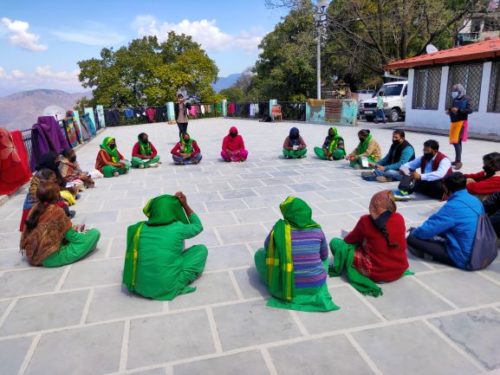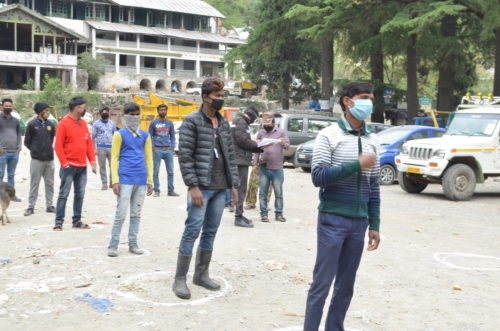Posted by Alliance of Indian Wastepickers
Written by Team Hilldaari
Region Asia-Pacific
Country India
May 16, 2020

Provision of the Kits by Honorable Chairperson of Mussoorie to the waste workers
Waste workers are a big part of this front-line brigade who is facing the threat of exposure to health hazards, in the run to make sure that the city neighbourhoods are clean and hygienic every day. It is thus important to support them in this CoVID-19 battle and Hilldaari is also ensuring that our waste workers are being taken care of.
Hilldaari is a project supported by Nestlé India and implemented by Stree Mukti Sanghatana along with Recity Network Pvt Ltd to build awareness and solve waste management issues in Mussoorie, Dalhousie and Nainital. One of the key focus areas of Hilldaari is to empower waste workers.
During these challenging times, Hilldaari is making sure that waste workers in our project towns are supported with basic essentials such as food supplies & sanitation products for women and are reassured with continuous communication and awareness about COVID-19 developments.

Nainital Municipal Council chairperson and Executive Officer distributing relief to workers in engaged in door to door collection of waste.
With the lockdown being imposed, the pandemic has brought upon us several uncertainties leading to a never-ending loop of worries. Hence, as a part of COVID-19 response, Hilldaari has been conducting regular awareness sessions about working etiquettes on-ground and providing important updates from the state and the country about the pandemic.
Apart from this, Hilldaari had also distributed food supplies, sanitation kits and protective masks to 284 waste workers in Nainital, Dalhousie and Mussoorie as a whole. One of the waste workers, named Vishwanath mentioned that “With shops shutting down and the city coming to a halt we were wondering how to get our food. But after receiving these kits, my whole family can sustain for the next one to two months”.

Safety training for the workers to stop the spread of the COVID 19
For this event to happen, all the key city stakeholders supported in planning and strategy, especially to ensure social distancing measures as prescribed nationally. Local Municipal officials such as the Elected Representative, Executive Officers and Sanitation Inspectors too came forward to help plan this initiative. They also helped the team identify and reach out to each and every worker (informal and formal) in all the three cities and participated in distributing the kits. While distributing, physical distancing circles at a distance of 2 meters were drawn for waste workers to line up and receive the kits.
Moreover, as part of the strategy, different locations were chosen across these cities to avoid crowd gathering and to ensure the feasibility of travelling for the waste workers living in the city fringes, taking an account of the unavailability of transportation.
This effort also motivated and reinforced the serious efforts taken by the rest of the city, to safeguard the health and hygiene of the waste workers, who are our frontline warriors.
With this improved motivation and better safety understanding, our waste workers will now be able to work with reinforced assurance and help us to keep our cities clean.
Tweet


